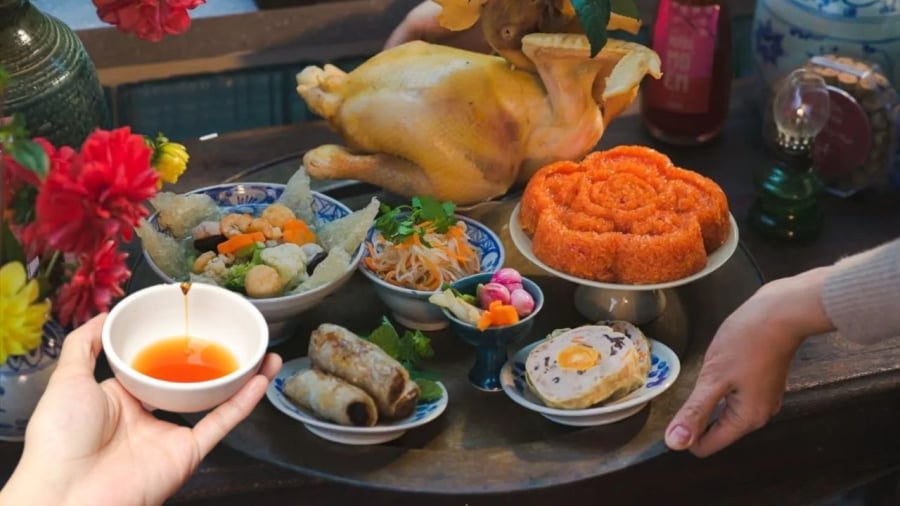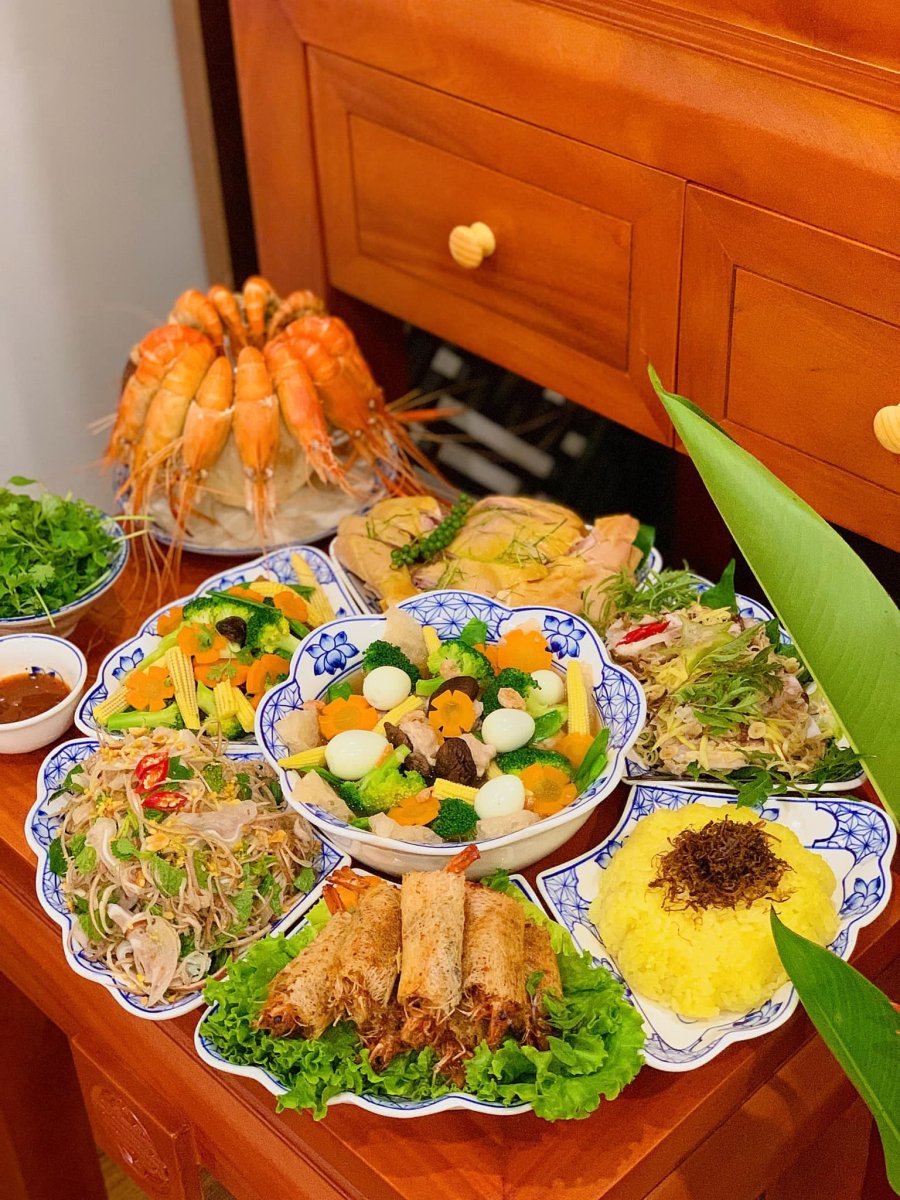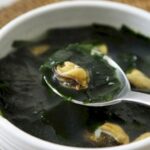Full Moon Offering, a Long-Standing Traditional Custom of the Vietnamese
Full Moon Offering, or “Cúng Rằm” in Vietnamese, is an age-old tradition observed by the Vietnamese people on the 15th day of every lunar month. It is a way for descendants to express their reverence to their ancestors, deities, and to wish for peace and good fortune.

Full Moon Offering Tray
However, when it comes to preparing the offerings, many wonder if it is appropriate to include fish sauce, a staple condiment in Vietnamese cuisine.
Is it acceptable to use fish sauce in Full Moon Offerings?
In folk belief, the use of fish sauce, which is considered a ‘slaughter-related’ product, is generally discouraged during important rituals like Full Moon Offerings, especially when offering vegetarian food (Buddhist offerings). This is because fish sauce is made from fish, which entails the killing of animals, and is thus believed to be inappropriate for rituals that emphasize purity and abstinence from killing.
In Buddhist offerings, salt is typically used instead of fish sauce. Salt symbolizes purity and is believed to purify and protect the family from bad luck.
However, when it comes to ancestor worship or deity worship during regular Full Moon Offerings, the use of fish sauce is not entirely prohibited. It depends on the specific rituals and family customs. You may consider including fish sauce, but it is essential to be mindful and respectful of the traditions your family follows.
Things to Keep in Mind When Preparing Full Moon Offerings
Choose appropriate food for each type of offering:
- Buddhist Offerings (Cúng Phật): Offer vegetarian food only. Avoid fish sauce and other animal-related products.
- Ancestor and Deity Worship (Cúng Gia Tiên và Thần Linh): You can prepare a tray with traditional savory dishes, which may include fish sauce. However, avoid overly pungent or obviously ‘slaughter-related’ foods.
Select the right time for the offering: Ideally, Full Moon Offerings are performed in the morning or before noon (12 p.m.). This is considered the most auspicious time to make offerings and prayers.
Prepare the necessary ritual items: Incense, flowers, and candles are essential for creating a solemn and sacred atmosphere during the Full Moon Offering ceremony. The fragrance of flowers and the light from the candles bring tranquility and solemnity to the event.

Full Moon Offering Spread
Offer fresh fruits: Choose fresh and ripe fruits such as bananas, pomelos, watermelons, or seasonal fruits. Ensure they are not bruised or damaged.
Betel and Areca nuts, and Alcohol: These are common offerings during Full Moon rituals. If your family worships ancestors or deities, these items are typically included in the offerings.
Avoid taboo practices: Do not use spoiled or stale food items in the offerings. After the ceremony, do not discard the offerings; instead, share them with your family as a way of sharing the blessings.
Maintain a peaceful atmosphere during the ceremony, avoiding loud noises or arguments, to show respect and reverence.
Sincerity is the most important factor: Regardless of the specific offerings, the sincerity and devotion of the host are what truly matter. It is believed that the deities and ancestors will witness and bestow blessings upon those who offer their prayers with a sincere and pure heart.
Conclusion: Whether or not to use fish sauce in Full Moon Offerings depends on the context and the type of ritual being performed. For Buddhist or vegetarian offerings, it is best to avoid fish sauce and use salt instead to maintain purity. However, for ancestor or deity worship, while fish sauce is not absolutely prohibited, it is important to consider the customs and traditions of your family to ensure a complete and respectful offering. Ultimately, what matters most is your sincerity and the positive intentions behind the offerings.



































